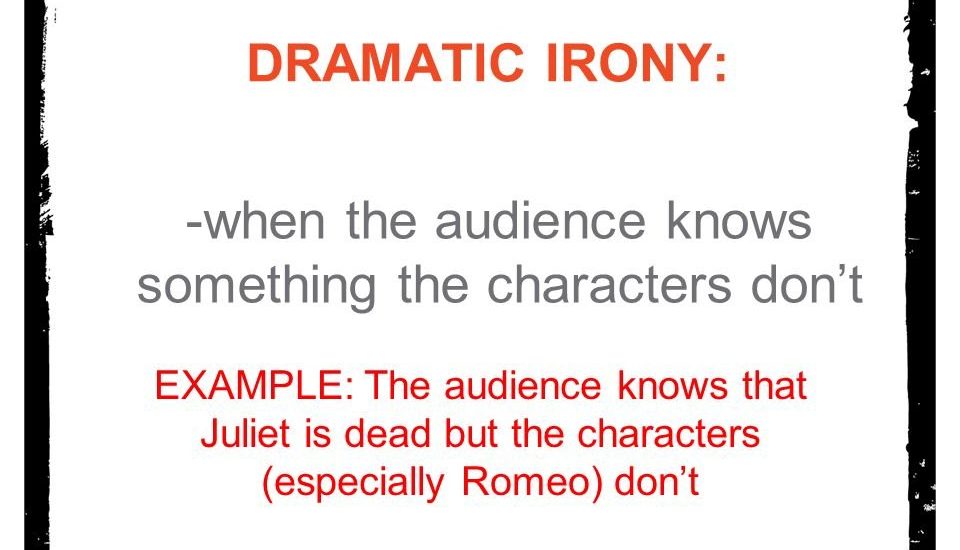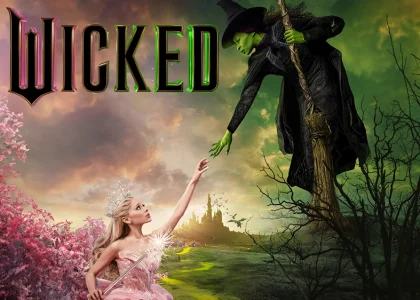Ever found yourself on the edge of your seat, knowing the danger lurking around the corner while the characters remain unaware? That feeling, my friends, is what is called dramatic irony. It’s the secret weapon filmmakers and writers use to hook us in, making us feel like insiders to the unfolding story. So, next time you catch yourself shouting warnings at the screen, remember, you’re experiencing the power of what is called when the audience knows something that the characters don’t. Buckle up, because we’re diving deep into this storytelling technique.
What is it called when the audience knows something that the characters don’t
Introduction
Have you ever watched a movie or read a book where you knew something important that the characters didn’t? You might have felt excited or even frustrated wanting to jump in and tell them what’s going on. Well, there’s a special term for this situation in storytelling. Let’s dive into the world of storytelling and explore what it’s called when the audience knows something that the characters don’t.
The Term: Dramatic Irony
Imagine watching a movie where the main character is walking into a trap, but they have no idea what’s coming. You, as the viewer, are aware of the danger ahead. This storytelling technique, where the audience has more information than the characters, is known as dramatic irony.
Examples of Dramatic Irony
One classic example of dramatic irony is William Shakespeare’s play “Romeo and Juliet.” We, the audience, know that Juliet is not actually dead when Romeo finds her seemingly lifeless body. This knowledge creates a sense of tension and anticipation as we watch Romeo’s tragic fate unfold.
Another famous example is in the movie “Titanic.” As viewers, we are aware that the ship is headed for disaster, but the characters on board are blissfully unaware. This creates a compelling contrast between what we know and what the characters know, adding depth to the story.
Effects of Dramatic Irony
Dramatic irony serves several purposes in storytelling. It can create suspense, tension, and even humor. By allowing the audience to be one step ahead of the characters, the story becomes more engaging and dynamic.
Suspense
When the audience knows something that the characters don’t, it builds suspense. We eagerly await the moment when the characters will discover the truth and how they will react. This anticipation keeps us on the edge of our seats, eagerly following the story as it unfolds.
Tension
Dramatic irony also creates tension between what we know and what the characters believe. This tension can lead to emotional moments and unexpected twists that keep us invested in the story. It adds layers of complexity and intrigue, making the storytelling experience more compelling.
Humor
In some cases, dramatic irony can be used for comedic effect. Imagine a scene where a character is making a plan based on incorrect information, but we, the audience, know the truth. This discrepancy can result in humorous situations that play on the contrast between what we know and what the characters think they know.
How Writers Use Dramatic Irony
Writers use dramatic irony as a powerful tool to engage their audience and enhance the storytelling experience. By strategically revealing information to the audience that the characters are unaware of, writers can create impactful moments and drive the narrative forward.
Building Tension
Dramatic irony is a great way to build tension in a story. By letting the audience in on a secret that the characters don’t know, writers can create a sense of unease and anticipation. This tension keeps the audience invested in the story, eager to see how events will unfold.
Character Development
Dramatic irony can also be used to develop characters. When we know something that the characters don’t, we get insights into their personalities, motivations, and relationships. Watching how characters react to new information can deepen our understanding of their inner workings and add complexity to the narrative.
Creating Emotional Impact
When used effectively, dramatic irony can evoke strong emotions in the audience. Whether it’s sadness, joy, anger, or surprise, knowing more than the characters can intensify the emotional impact of key moments in the story. This emotional resonance makes the storytelling experience more memorable and meaningful.
In the world of storytelling, dramatic irony plays a crucial role in captivating audiences and bringing narratives to life. By allowing the audience to know something that the characters don’t, writers can create suspense, tension, and emotional depth that make stories truly unforgettable. Next time you watch a movie or read a book, pay attention to those moments of dramatic irony, and enjoy the thrill of being in on the secret!
do NOT age-shame Erica #StrangerThings #Netflix
Frequently Asked Questions
What does it mean when the audience knows something that the characters don’t?
When the audience knows information that the characters in a story are unaware of, it is referred to as dramatic irony. This literary device creates tension and suspense as viewers anticipate how characters will react when they eventually discover the truth.
How does dramatic irony impact storytelling?
Dramatic irony adds depth and complexity to a narrative by allowing the audience to have insights that influence their understanding of unfolding events. It engages viewers by encouraging them to analyze characters’ decisions and motivations based on the privileged information they possess.
Can you provide an example of dramatic irony in a popular movie or TV show?
One famous example of dramatic irony is in Shakespeare’s play “Romeo and Juliet,” where the audience knows that Juliet is not actually dead, but Romeo believes she is and tragically takes his own life. This contrast between what the audience knows and what the characters believe adds emotional impact to the story.
Final Thoughts
When the audience knows something that the characters don’t, it creates dramatic irony. This literary technique adds depth to storytelling by allowing viewers to anticipate outcomes. By being privy to information unknown to the characters, the audience becomes more engaged in the narrative. Thus, enhancing the overall viewing experience.






